Pro life during the pandemic
Professional triathletes are facing many challenges in 2020
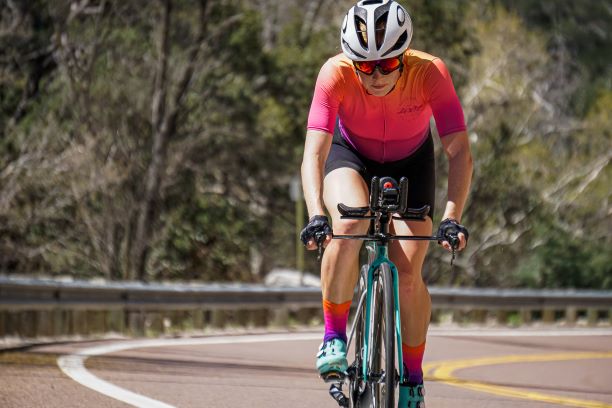 Photo by:
Sean Watkins
Photo by:
Sean Watkins
Let’s be honest: if you’re an age grouper, missing a triathlon season because of a global pandemic isn’t that big of a deal. Yes, it can be upsetting. Yes, it can be annoying that we are not to entitled to a refund from a billion-dollar company. And yes, it’s highly irritating to spend hours on the phone trying to get your money back from airlines.
But there will be other races, and we’ll get to do what we love very soon.
For a professional athlete, on the other hand, a season without races can have more severe consequences. Without the possibility of racing, earning prize money and providing visibility for sponsors, a season without competition can mean the end of a career.
The life of a professional triathlete is a delicate balance. The business model that allows athletes to sustain themselves and their families with training and racing is far from a piece of cake (though it involves some of that in the recovery and fuelling phases). If you’re not among one of the world’s top-10 superstars, or at least within the top 100 currently supported by the Professional Triathletes Organisation (PTO), a season without races can mean the end of a dream.
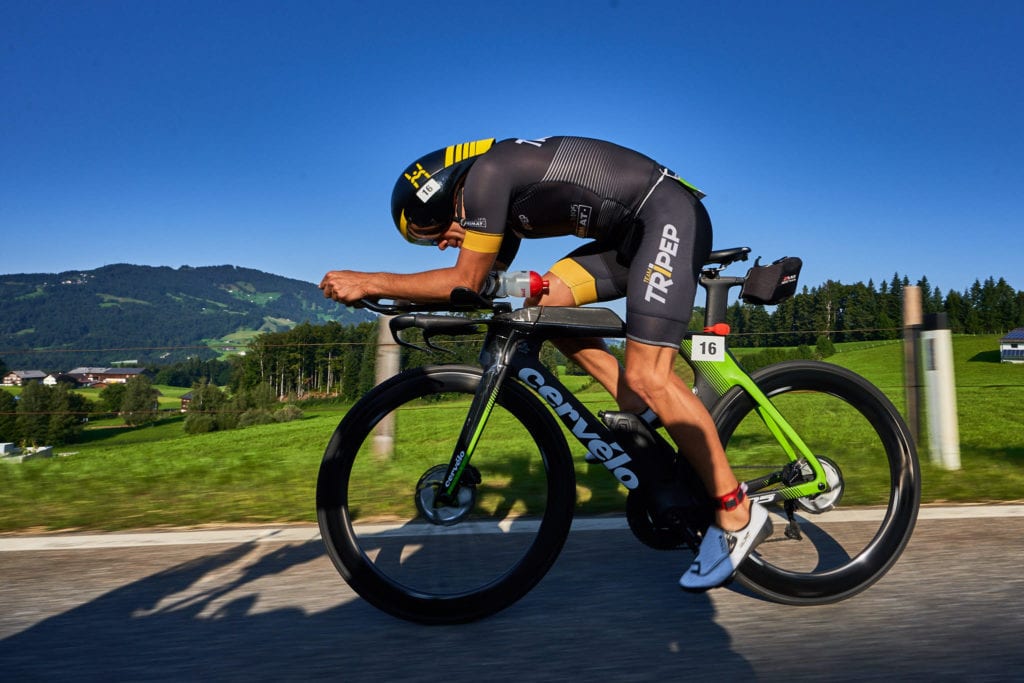
Markus Hörmann is a professional triathlete from Bad Tölz, Germany. Before being a professional triathlete, he raced as an alpine skier. Not only has the transition from a fast-twitch- fiber sport to endurance been tricky, but in 2016 he had a serious hip surgery. Even so, in 2020, he was targeting a Kona slot — but the reality has become less glamorous. He’s unsure whether his sponsors will support him again next year.
“I am relatively safe for this year, but nobody knows how it will be in September or next year,” he says. “All of my sponsors have paid me for this year, and it’s no problem. We had some talks, and some say we’ll talk again in September or December because they don’t know how things will develop. There is so much unknown right now, and I don’t wonder if we’ll lose a lot of professional athletes, not only in triathlon.”
His business model is a mix of financial and technical support from sponsors, and metabolic coaching he provides to athletes and the general public. He was also in touch with the PTO, and received some help from them, though he says “it was not a lot.”
The interesting aspect of Hörmann’s sponsorship agreements is that they are not from the sports or fitness industries.
“They’re local businesses,” ranging from companies that make fire alarms to furniture for offices. “They sponsor me not because of my performances, but because they know me, and they like what I do,” he says.
It can be harder with brands from the triathlon industry: they require results and Instagram followers.
“It’s so hard to earn money from these sponsors if you’re not at the top. That’s why you need to look for other industries,” he says. “But some pros don’t have the time or knowledge to do it, and they only race for prize money. But in a situation like this, if you’re injured, and something else happens, you’re out of the business.”
But Hörmann feels positive about the future: even if he hadn’t received any support for 2020, he would have focused on his plan B, which is the metabolic-holistic coaching business he does. He’s already working with 16 people (the process lasts four to eight weeks), and he offers nutritional coaching, suggests fitness-related movements, relaxation techniques and stress management.

In a different situation, but also in limbo, is Great Britain’s Ruth Astle’s. Astle turned pro in the fall of 2019 shortly after winning the overall age group race in Kona (she also earned her AG title in 2018).
Her first race as a pro was Ironman Western Australia (on December 2nd, 2019, where she finished eighth in 9:17), but since then, she hasn’t had the opportunity to test her fitness again in the pro field.
Instead, her background in banking came to the rescue. Before turning professional, she decided to opt for a set-up that relieved some of the financial burden’s inherent as a first year pro.
“I wanted to make sure that there wasn’t a huge amount of pressure on turning it into a business model,” she says. “I wanted to be able to concentrate on the training and not feel the pressure to go to races and perform for sponsors and prize money. So, I also put aside quite a lot in savings to sort of manage that and take that pressure off a little bit.”
On the other hand, most of her sponsors are technical partners providing the kit (as a first-year pro offer), but she also has a couple offering some financial incentives tied to races and podiums. Which, of course, is something she can’t rely on this year.
“It’s a bit hard to get more [from sponsors] until you’re more established, and you’ve got more results to show,” she explains. For that reason, Astle decided not to go on a full sabbatical, and she’s still working two days a week for Lloyd’s Banking supporting the Chief Information Office.
“Had I not set myself up to be in a position where I didn’t have to worry about money, then things would be quite stressful,” she says.
Canadian triathletes are also facing similar situations. Some of them rely solely on sponsors, while others have found different ways to maintain their financial balance.
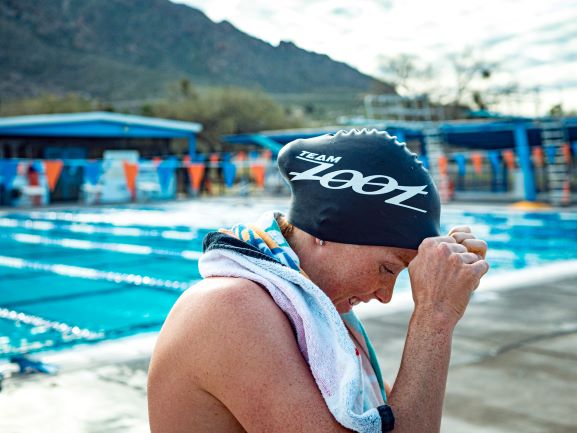
“I’m currently making money from sponsor base payments, and in a normal race year, race bonuses and prize money,” says middle-distance triathlete Paula Findlay — who’s currently on the PTO’s Athletes Board and ranked 15th in their ranking. “I’m not currently supported by Triathlon Canada because I’m not racing ITU anymore, and that is where they direct their funding. I also have savings from my 2010-2012 success in the sport [when she won several WCS races and finished fifth at the World Championships], which is a good safety net for difficult years like this one. I generate a bit of income from social media posts with brands, but these are usually one-off collaborations, so not a steady source of income.”
And in a year like the one we’re living, providing visibility for brands without racing can prove to be tricky if you don’t look for opportunities rather than focusing on the challenges. Findlay says she’s trying to be more creative with social media than before and spending more time on her vlog (together with her boyfriend and pro triathlete Eric Lagerstrom).
“[The current situation] has certainly decreased the amount of prize money and bonuses I’m earning, which is my primary source of income, so I suppose it has negatively affected my career in that way,” she says. “However, it has also been a mentally refreshing break, which I haven’t taken in my 15 years in the sport. I’m much happier and healthier than I’ve been in years, so although income is lower this year, I’ll come out the other end of it in better shape and with some renewed motivation for whenever racing starts back up.”
Findlay says that none of her sponsors have shown hesitation regarding next season (some of her contracts run through 2021), although she points out it’s not the time for contracts to be renewed.
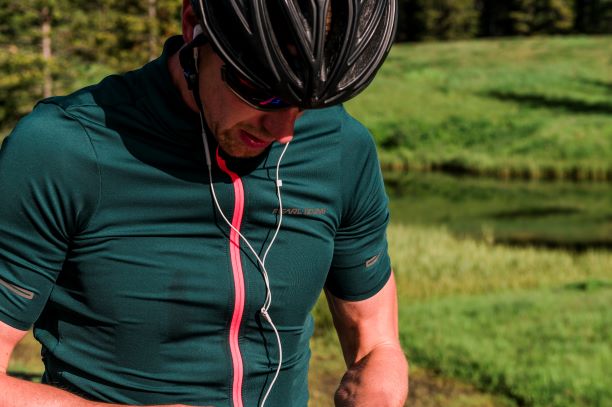
Jason Pohl is a long-distance pro from Calgary, Alberta. He turned pro in 2017, and he’s currently supported by sponsorship deals that include monthly payments and performance bonuses. On the side, he’s been doing a bit of nutritional coaching too. Without racing, of course, the performance bonuses and prize money are out of the picture. In regards to brands’ response to Covid19, he says he has seen both sides of the coin.
“I’ve seen some sponsors postpone the payout because they’ve been affected by the situation, but then I’ve also found other opportunities with companies that haven’t been negatively impacted,” he says.
Pohl, who has a commerce degree, says that his background has helped him build up his professional relationships. Still, 80 per cent of the time, he pitches himself to brands – it’s not often that companies reach out to him. He also highlights the importance of understanding that the situation is hard for brands as well.
“The relationships we have with sponsors are essentially a business relationship. It takes time to build and grow those, and you have to share this journey with them too, throughout all the successes and failures you face. They’re there to support your dream, and that’s a blessing,” he says. “That’s why checking in with them every month and keeping the relationship going is very important.”
Pohl spent four years in the Wealth Management industry and three building a wealth management practice [which he sold in 2018]. He believes that many relations can be established within and outside the triathlon world. “If you work out and focus on finding opportunities, they’re certainly out there,” he says.
On the other hand, short-distance athlete Matthew Sharp receives support from both his sponsors and the Canadian government through their elite carding program. He felt the difficulty of not competing for prize money, although “that is not exactly a certainty in itself,” he says.
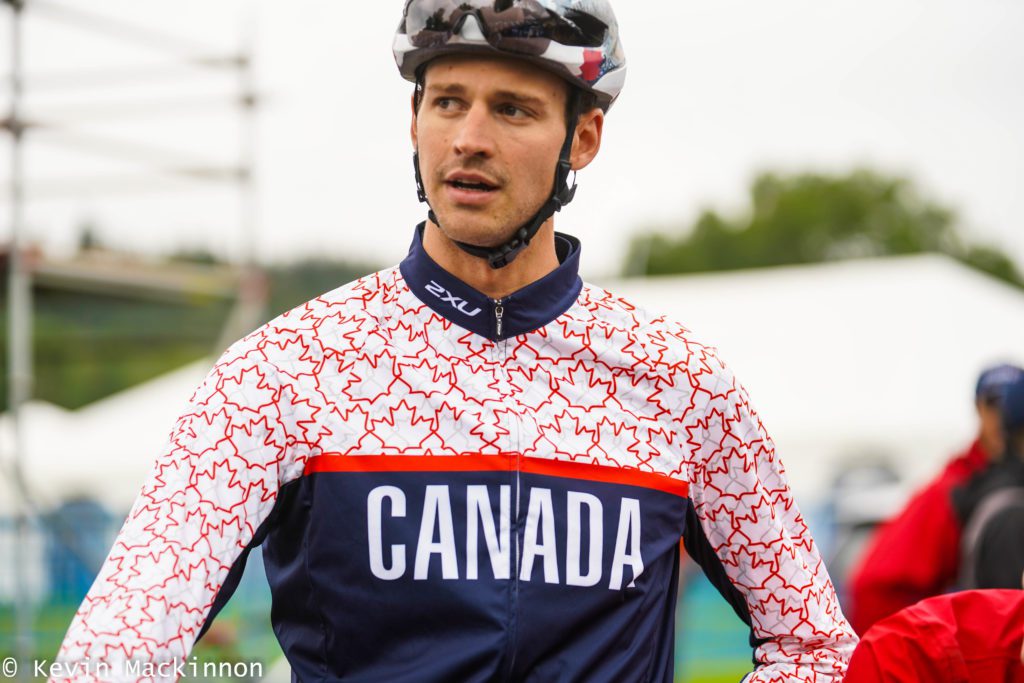
Based on his recent talks with his partners (Deloitte Canada, The Running Room, and CLIF Bar), he believes they will be continuing their support in the future. He also feels “It will be challenging to acquire new supporters during this time,” but his plan is also to reach out to local businesses and individuals.
“Having lost the support of Triathlon Canada [he recently decided not to be coached by the national coach], 2021 looks increasingly difficult,” he says. “If I can retain my Canadian government funding, that will certainly help. If I want to be able to support myself, I believe I will need to market myself to more local businesses and individuals. With a bit of creativity, I’m sure there are always opportunities.”
The PTO has helped athletes in 2020 by increasing their Year-End Annual Bonus Programme (from $2,000,000 to $2,500,000). The additional payouts went to men and women ranked 21-50 ($8,000 bonus instead of $5,000), and athletes ranked 51-100 ( $5,000 bonus instead of $2,000. Top 20 get a minimum of £10,000 — up to $100,000 for the top ranked athletes (Jan Frodeno and Daniela Ryf).
The athletes we spoke with all see the PTO as a potential change for the future of the sport, but only time will tell if it’s here to stay.
Nick Busca is a freelance journalist based in London, England. This story originally appeared in the September, 2020 edition of Triathlon Magazine Canada.
